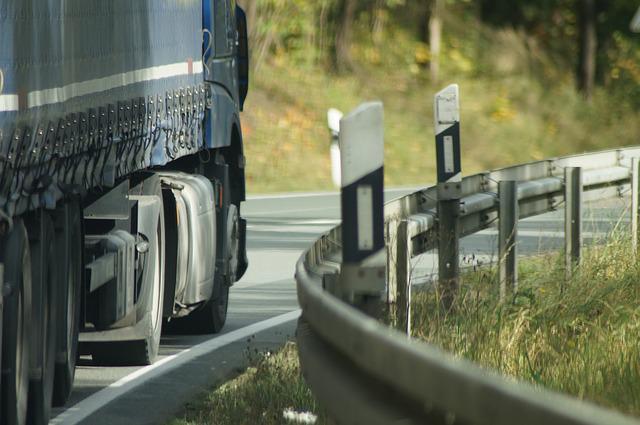Follow Us @
How transport insurance works
-Receive alerts for the main trending insurance news today, car insurance updates, types of insurance, latest insurance opportunities and lots more! Enjoy your stay!!
Transport insurance can be taken out for road, sea, air and other modes.
The transport of cargo and goods is essential to supply companies and the population. In order for the goods to be taken, they need to have transport insurance.
In this case, it is possible for the movement to be carried out by sea, air or road. The latter is the most used and the one most sought after for protection.

Image: Pixabay
What is transport insurance?
Transport insurance is also known as cargo insurance. They are part of a category that aims to protect goods and merchandise.
It aims to mitigate the risks that owners have and can be used with different modes such as road, rail, air, sea and others. Furthermore, it can be used on national or international trips.
What types of insurance exist?
The types of transport insurance that exist can be classified according to the location of the transport and who contracts it. Are they:
1. National insurance
National insurance is mandatory and aims to protect the shipper during transport. It is valid for all modes and covers the national territory.
Protects in situations of robbery, theft, rollovers, explosions and others. The contract must be made by the owner of the merchandise.
2. International insurance
International insurance must also be taken out by the owner of the goods, but it is not mandatory. Your intention is to protect the assets that are being taken.
3. RCTR-C – Road Cargo Carrier Civil Liability insurance
As the name suggests, it is valid for cargo transported by road. As already mentioned, according to Decree-Law nº 73/1966 it is mandatory and protects the transported goods in the event of an accident.
4. RCTA-C: air carrier civil liability insurance
Valid for air transport carried out by companies that have ANAC authorization to operate. It will protect the cargo from accidents arising from different reasons.
5. RCTF-C: railway transporter civil liability insurance
Guarantees compensation for goods during accidents caused by road transport. It also covers accidents that occur during overnight stays or transfers used in this mode.
6. RCA-C: shipowner’s civil liability insurance — Cargo
Like other modes, maritime transport also has cargo insurance. It covers situations similar to the previous ones and compensates for damage to property.
7. RCTR-VI: road transporter civil liability insurance
It will cover trips made by road transport, however, covering international territories. It is widely used in Mercosur.
The scope of coverage is limited to cargo and only in accident situations.
8. RCF-DC: optional civil liability insurance
This transport insurance aims to protect merchandise in situations of robbery, theft, kidnapping, fraud and others. The idea is to guarantee compensation for actions carried out by gangs and criminals.
The toppings
Transport insurance coverage can be summarized as Restricted Basic Coverage (C), Restricted Basic Coverage (B), Broad Basic Coverage (A) and additional coverage:
- Restricted Basic Coverage (C) is the simplest and involves situations such as fire, rollover, collision, grounding or sinking of the vessel.
- Restricted Basic Coverage (B) contains all the protections of the previous category and additional ones such as earthquake, flood, water entry into the vehicle and others.
- Broad Basic Coverage (A) includes the protections of the two previous coverages and expenses with cargo recovery, costs when there is an error on the route and reimbursements for unloading and storage.
Finally, additional coverage can be included as needed by the contractor.
They may include risks of strikes, taxes on imported or exported goods, transshipment and route deviation, extension of deadlines, opening of volumes and others.
What are the forms of hiring?
Insurance can be purchased for single loads, that is, a new policy must be taken out for each trip.
Another possibility is an open policy covering different trips, average values transported, etc. It has a policy with the contracted conditions and an endorsement must be made for each transport.
Regardless of the form of contracting, documents such as the shipper's and/or carrier's CNPJ, information on logistical operations, exemption from credit and judicial restrictions, etc., must be presented.
How does compensation work?
If an accident occurs, you must inform the insurance company as soon as possible. Documents will be requested for analysis and to record the incident.
After sending these, the insurer assesses whether the situation is covered by the policy and whether there are no irregularities. If everything is in order, the compensation will be released within 30 days from the complete delivery of the documentation.
Transport insurance aims to protect the loads that are transported and should not be confused with vehicle insurance.
How transport insurance works
Follow AFRILATEST on Google News and receive alerts for the main trending insurance news today, car insurance updates, types of insurance, latest insurance opportunities and lots more!
How transport insurance works
SHARE POST AND EARN REWARDS:
Join our Audience reward campaign and make money reading articles, shares, likes and comment >> Join reward Program
FIRST TIME REACTIONS:
Be the first to leave us a comment, down the comment section. click allow to follow this topic and get firsthand daily updates on Insurance.
JOIN US ON OUR SOCIAL MEDIA: << FACEBOOK >> | << WHATSAPP >> | << TELEGRAM >> | << TWITTER >
How transport insurance works
#transport #insurance #works
-

 Fashion3 months ago
Fashion3 months agoVogue Arabia cover welcomes Salma Hayek in an interview with Penélope Cruz
-

 Football3 months ago
Football3 months agoVAR points out Diego Costa's offense against the fourth referee
-

 USA today entertainment3 months ago
USA today entertainment3 months agoBeyonce with the single “Break My Soul” leads on Spotify Brazil
-

 Health and Fitness3 months ago
Health and Fitness3 months agoVaccine against the reappearance of skin cancer enters final testing phase
-

 USA today entertainment3 months ago
USA today entertainment3 months agoSZA, Future and DJ Khaled come together in collaboration
-

 News3 months ago
News3 months agoParents of former player Waleswska are pressured by widower to pay rent for the house where they live
-

 USA today entertainment3 months ago
USA today entertainment3 months agoLarissa Luz and Linn da Quebrada enchant at the Multishow Awards with a tribute to Elza Soares.
-

 Good News TV series3 months ago
Good News TV series3 months agoThe shocking reason behind the decision not to show dead characters in The Last Of Us episode revealed







































